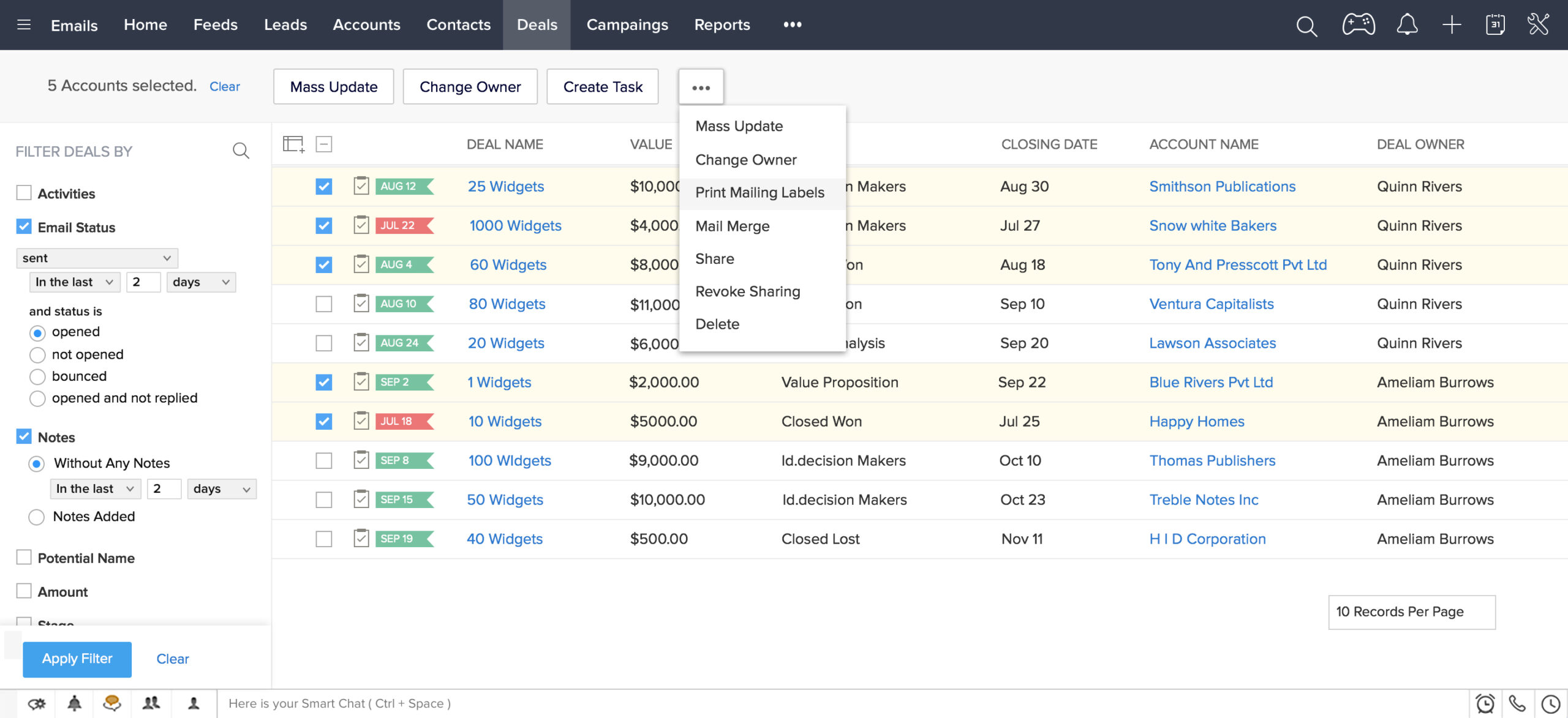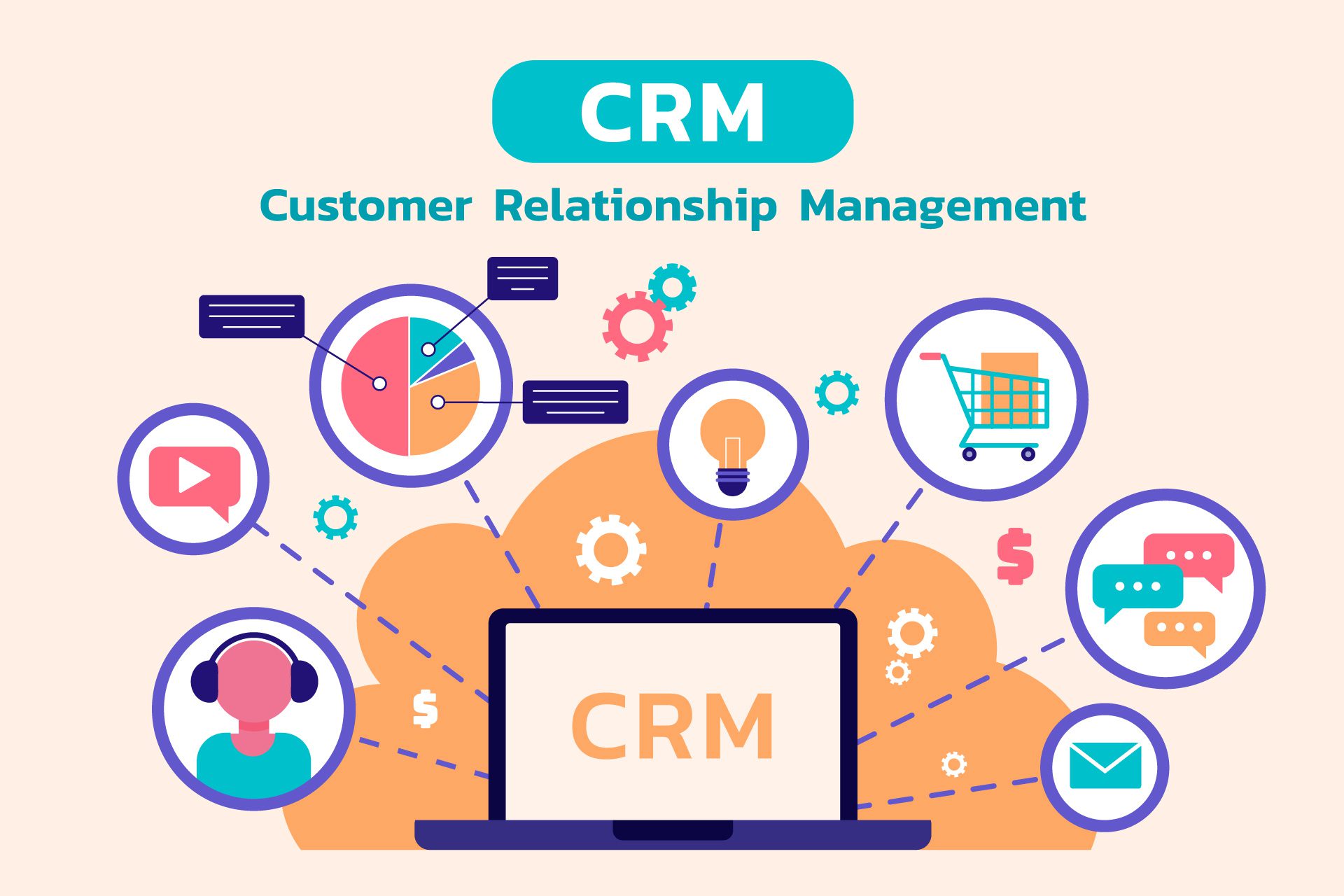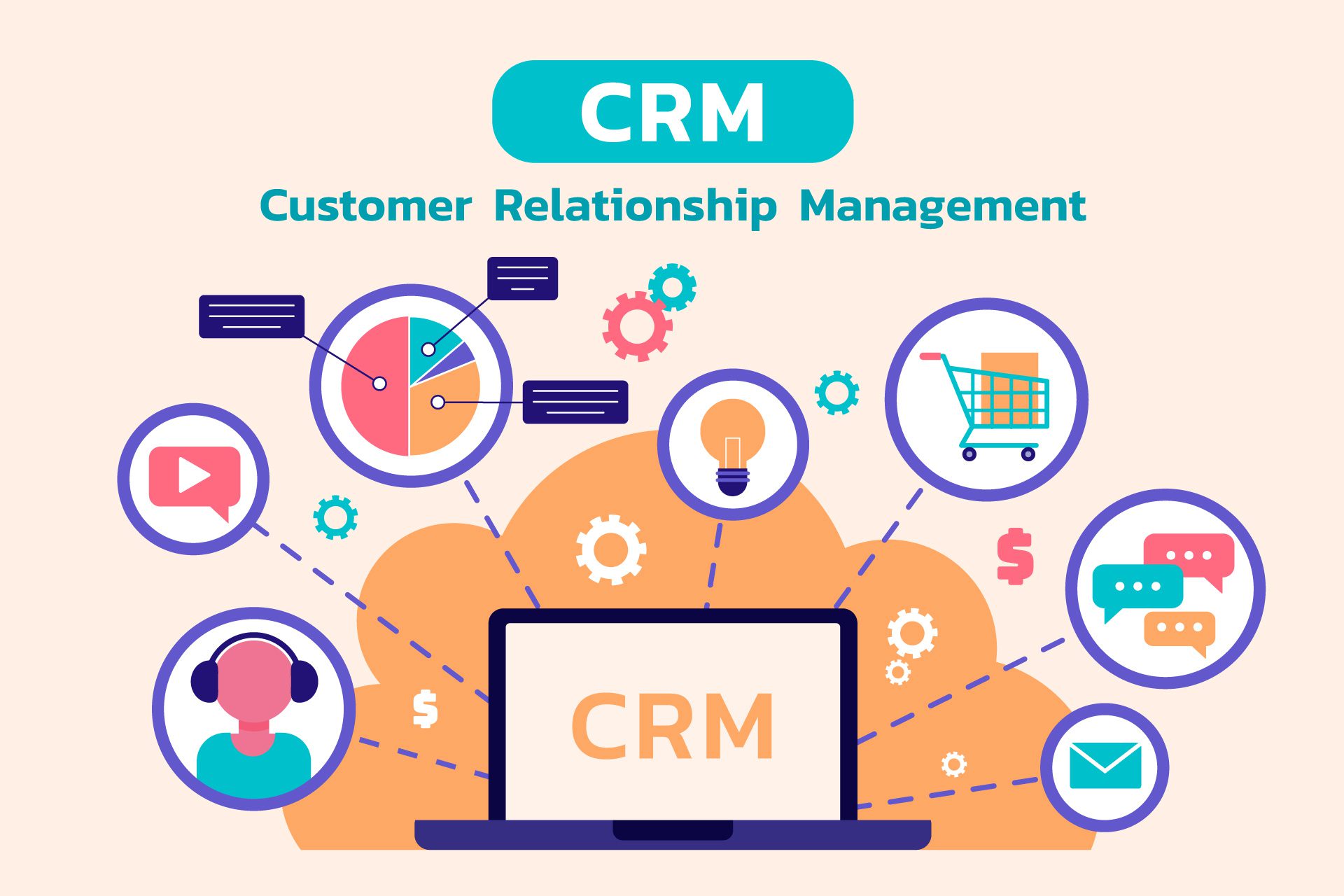Bloom & Grow: The Ultimate CRM Guide for Small Florists to Cultivate Success

Bloom & Grow: The Ultimate CRM Guide for Small Florists to Cultivate Success
Running a small florist business is a labor of love. It’s about more than just arranging flowers; it’s about crafting moments, celebrating life’s milestones, and building lasting relationships with your customers. But amidst the beauty and creativity, the day-to-day operations can become overwhelming. Juggling orders, managing inventory, tracking customer preferences, and keeping up with marketing efforts can feel like a delicate dance on a tightrope. That’s where a Customer Relationship Management (CRM) system comes in. Think of it as your digital garden, helping you cultivate strong customer relationships and watch your business bloom.
This comprehensive guide dives deep into the world of CRM specifically tailored for small florists. We’ll explore the benefits, the key features to look for, and the best CRM options available to help you nurture your business and achieve lasting success. Get ready to transform your floral business from a simple shop into a thriving enterprise.
Why Does Your Floral Business Need a CRM?
In the vibrant world of floristry, a CRM isn’t just a fancy tool; it’s a necessity. It’s the foundation upon which you build strong customer relationships, streamline operations, and ultimately, boost your bottom line. Let’s unpack the core reasons why a CRM is essential for your small floral business:
- Centralized Customer Data: Imagine having all your customer information – contact details, purchase history, special requests, and even birthdays – readily available in one place. A CRM does exactly that. It eliminates the chaos of scattered spreadsheets, sticky notes, and mental notes, providing a single source of truth for all your customer interactions.
- Improved Customer Service: With a CRM, you can personalize every interaction. Knowing a customer’s past orders, favorite flowers, and important dates allows you to anticipate their needs, offer tailored recommendations, and provide exceptional service that keeps them coming back.
- Streamlined Order Management: From taking orders to processing payments and scheduling deliveries, a CRM can automate and simplify the entire order management process. This frees up your time to focus on what you love: creating beautiful floral arrangements.
- Targeted Marketing Efforts: A CRM allows you to segment your customer base and create targeted marketing campaigns. You can send personalized emails, offer exclusive discounts, and promote specific products to the right customers at the right time, maximizing your marketing ROI.
- Enhanced Sales Opportunities: By tracking customer interactions and purchase history, a CRM can identify potential upsell and cross-sell opportunities. You can proactively suggest add-ons, recommend complementary products, and increase the average order value.
- Data-Driven Decision Making: A CRM provides valuable insights into your business performance. You can track sales trends, identify popular products, and analyze customer behavior to make informed decisions about inventory, marketing, and pricing.
- Increased Efficiency and Productivity: Automating tasks, centralizing information, and streamlining workflows saves you time and reduces errors, allowing you to work smarter, not harder.
In essence, a CRM empowers you to build stronger customer relationships, optimize your operations, and drive sustainable growth. It’s an investment that pays off in increased customer loyalty, improved profitability, and a more enjoyable business experience.
Key Features to Look for in a CRM for Florists
Not all CRMs are created equal. When choosing a CRM for your floral business, it’s crucial to select one that aligns with your specific needs and requirements. Here are the essential features to prioritize:
- Contact Management: This is the cornerstone of any CRM. Look for features that allow you to easily store, organize, and access customer contact information, including names, addresses, phone numbers, email addresses, and any other relevant details.
- Order Management: The ability to manage orders efficiently is paramount. The CRM should allow you to easily create, track, and manage orders, including details such as order date, delivery date, floral arrangement, price, payment status, and delivery instructions.
- Customer Segmentation: Being able to segment your customers based on criteria like purchase history, location, or preferences is vital for targeted marketing. The CRM should allow you to create custom segments and tailor your communications accordingly.
- Email Marketing: Integrated email marketing capabilities are a huge plus. The CRM should allow you to send personalized emails, create email templates, and track email performance to measure the effectiveness of your campaigns.
- Appointment Scheduling: For florists who offer consultations or custom arrangements, an appointment scheduling feature can be invaluable. It allows customers to easily book appointments, and it helps you manage your schedule efficiently.
- Reporting and Analytics: The ability to generate reports and analyze data is crucial for understanding your business performance. The CRM should provide insights into sales trends, customer behavior, and marketing campaign effectiveness.
- Inventory Management Integration: Some CRMs integrate with inventory management systems, allowing you to track your flower stock, manage supplies, and avoid running out of popular blooms.
- Payment Processing Integration: Integrating with payment gateways simplifies the payment process and makes it easier for customers to pay for their orders.
- Mobile Accessibility: Being able to access your CRM on the go is essential for florists who are often out of the shop. Look for a CRM with a mobile app or a responsive web design.
- Ease of Use: The CRM should be user-friendly and easy to navigate. A complex or clunky system will only frustrate you and your team.
- Integration Capabilities: Consider how well the CRM integrates with other tools you use, such as your website, accounting software, and social media platforms.
- Customization Options: The ability to customize the CRM to fit your specific needs is important. Look for a CRM that allows you to add custom fields, create custom reports, and tailor the system to your workflow.
By carefully evaluating these features, you can choose a CRM that empowers you to streamline your operations, enhance customer relationships, and drive the success of your floral business.
Top CRM Systems for Small Florists
Now, let’s dive into some of the best CRM systems specifically designed or well-suited for small florists. We’ll explore their key features, pricing, and potential benefits to help you make an informed decision.
1. BloomNation (CRM & Marketplace)
BloomNation is more than just a CRM; it’s a comprehensive platform that combines a CRM with a marketplace for florists. This dual functionality makes it a compelling choice for florists looking for an all-in-one solution.
- Key Features:
- Order Management: Streamlined order processing, delivery scheduling, and order tracking.
- Customer Management: Centralized customer database with detailed profiles.
- Website Builder: Create a professional website to showcase your floral arrangements.
- Marketplace: Access to a built-in marketplace to reach a wider audience.
- Marketing Tools: Integrated marketing tools to promote your business.
- Payment Processing: Secure payment processing for online orders.
- Pros:
- All-in-one solution: Combines CRM, website builder, and marketplace.
- Strong focus on the floral industry.
- Excellent customer support.
- Cons:
- Pricing can be higher compared to standalone CRM options.
- Reliance on the BloomNation marketplace may not be ideal for all florists.
- Pricing: Varies depending on the features and services selected.
- Ideal For: Florists looking for a comprehensive platform with a built-in marketplace and website builder.
2. Hubspot CRM
HubSpot CRM is a popular choice for businesses of all sizes, including small florists, due to its robust features and free plan. It’s a powerful and versatile CRM that offers a wide range of tools to manage customer relationships and streamline sales and marketing efforts.
- Key Features:
- Contact Management: Store and organize customer information, track interactions, and manage communications.
- Sales Automation: Automate repetitive tasks, such as sending emails and creating follow-up tasks.
- Marketing Tools: Create and manage email marketing campaigns, track website activity, and analyze marketing performance.
- Reporting and Analytics: Generate reports on sales, marketing, and customer behavior.
- Free Plan: Offers a generous free plan with essential features.
- Pros:
- Free plan provides a solid foundation.
- Wide range of features and integrations.
- User-friendly interface.
- Cons:
- Advanced features require paid plans.
- Can be overwhelming for beginners due to the extensive features.
- Pricing: Free plan available; paid plans offer more features and functionality.
- Ideal For: Small florists seeking a feature-rich, scalable CRM with a free option.
3. Zoho CRM
Zoho CRM is another popular and affordable CRM option that offers a wide range of features suitable for small businesses. It’s known for its customization options and its ability to integrate with other Zoho apps, making it a good choice for businesses already using the Zoho ecosystem.
- Key Features:
- Contact Management: Manage customer data, track interactions, and personalize communications.
- Sales Automation: Automate sales processes, such as lead nurturing and follow-up tasks.
- Marketing Automation: Create and manage email marketing campaigns, automate social media posting, and track marketing performance.
- Workflow Automation: Automate repetitive tasks and streamline workflows.
- Customization Options: Customize the CRM to fit your specific needs.
- Pros:
- Affordable pricing.
- Customization options.
- Integration with other Zoho apps.
- Cons:
- Interface can be less intuitive than some other CRM options.
- Some features may require additional add-ons.
- Pricing: Offers a free plan for up to three users; paid plans provide more features and functionality.
- Ideal For: Small florists seeking an affordable, customizable CRM with strong integration capabilities.
4. HoneyBook
HoneyBook is a CRM specifically designed for creative businesses, including florists. It’s a great choice for those who want a streamlined platform for managing projects, sending invoices, and communicating with clients.
- Key Features:
- Project Management: Manage projects from start to finish, track progress, and collaborate with clients.
- Invoicing: Create and send professional invoices, track payments, and manage finances.
- Contracts: Create and manage contracts, get them signed electronically, and store them securely.
- Client Communication: Communicate with clients through a centralized platform, track conversations, and manage files.
- Automation: Automate tasks such as sending invoices, follow-up emails, and reminders.
- Pros:
- User-friendly interface.
- Streamlined workflows for creative businesses.
- Strong focus on project management and client communication.
- Cons:
- May not be suitable for florists who primarily need a CRM for managing customer data and marketing.
- Pricing can be higher compared to some other CRM options.
- Pricing: Paid plans are available.
- Ideal For: Florists who are looking for a platform to manage projects, send invoices, and communicate with clients, particularly those who value a user-friendly interface and streamlined workflows.
5. Monday.com
While not exclusively a CRM, Monday.com is a highly versatile project management platform that can be adapted to meet the needs of a florist. It offers a visual and intuitive interface that allows you to track orders, manage tasks, and collaborate with your team.
- Key Features:
- Customizable Boards: Create boards to track orders, manage inventory, and manage marketing campaigns.
- Task Management: Assign tasks, set deadlines, and track progress.
- Collaboration Tools: Communicate with your team, share files, and collaborate on projects.
- Automation: Automate repetitive tasks, such as sending notifications and updating statuses.
- Integrations: Integrate with other tools, such as email, calendar, and accounting software.
- Pros:
- Highly customizable and flexible.
- Visual and intuitive interface.
- Strong collaboration tools.
- Cons:
- Not a dedicated CRM, so it may lack some CRM-specific features.
- Can be overwhelming for beginners due to the extensive customization options.
- Pricing: Offers a free plan for up to two users; paid plans provide more features and functionality.
- Ideal For: Florists who are looking for a flexible project management platform that can be adapted to manage orders, tasks, and collaboration, and who value a visual and intuitive interface.
How to Choose the Right CRM for Your Floral Business
Choosing the right CRM is a crucial decision that can significantly impact your business’s success. Here’s a step-by-step guide to help you make the right choice:
- Assess Your Needs: Before you start looking at CRM options, take the time to assess your current business processes and identify your pain points. What tasks are time-consuming? What areas need improvement? What are your goals for using a CRM?
- Define Your Requirements: Based on your needs assessment, create a list of essential features and desired functionalities. Prioritize the features that are most important to your business.
- Research CRM Options: Explore the CRM options available, taking into account the features, pricing, and reviews. Read reviews from other florists to get insights into their experiences.
- Consider Your Budget: Determine how much you are willing to spend on a CRM. Consider both the initial cost and the ongoing subscription fees.
- Evaluate Integration Capabilities: Make sure the CRM integrates with other tools you use, such as your website, accounting software, and email marketing platform.
- Request Demos and Trials: Most CRM providers offer demos or free trials. Take advantage of these opportunities to test the CRM and see if it meets your needs.
- Consider Scalability: Choose a CRM that can grow with your business. Consider how your needs might change in the future and select a CRM that can accommodate those changes.
- Prioritize User-Friendliness: The CRM should be easy to use and navigate. A complex system will only frustrate you and your team.
- Provide Training and Support: Ensure that the CRM provider offers adequate training and support to help you and your team get up to speed.
- Make a Decision and Implement: After evaluating your options, make a decision and implement the CRM. Provide training to your team and monitor the results.
By following these steps, you can choose a CRM that empowers you to streamline your operations, enhance customer relationships, and drive the success of your floral business. Remember to take your time, do your research, and choose a CRM that aligns with your specific needs and goals.
Tips for Successful CRM Implementation
Implementing a CRM is more than just selecting a software; it’s about integrating it into your business processes and empowering your team to use it effectively. Here are some tips to ensure a smooth and successful implementation:
- Get Buy-In from Your Team: Involve your team in the selection process and explain the benefits of using a CRM. This will help them understand the value of the system and encourage them to use it.
- Develop a Clear Implementation Plan: Create a detailed plan that outlines the steps involved in implementing the CRM, including data migration, training, and testing.
- Migrate Your Data Carefully: Transferring your existing customer data to the new CRM is a critical step. Ensure that the data is accurate, complete, and properly formatted.
- Provide Comprehensive Training: Train your team on how to use the CRM, including all the features and functionalities they need to know. Offer ongoing training and support to address any questions or challenges.
- Customize the CRM to Your Needs: Tailor the CRM to fit your specific business processes and workflows. This may involve adding custom fields, creating custom reports, and configuring the system to your preferences.
- Test the CRM Thoroughly: Before going live, test the CRM to ensure that it is working correctly. Test all the key features and functionalities, and identify any bugs or issues.
- Monitor and Evaluate Your Progress: Track your progress and measure the impact of the CRM on your business. Use reports and analytics to identify areas for improvement and optimize your use of the system.
- Provide Ongoing Support: Offer ongoing support to your team to help them use the CRM effectively. This may involve providing training, answering questions, and troubleshooting any issues.
- Stay Flexible and Adapt: Be prepared to adapt your processes and workflows as needed. The CRM is a tool that should be used to improve your business, so be open to making changes as needed.
- Celebrate Your Success: Acknowledge and celebrate the successes of your CRM implementation. This will help motivate your team and reinforce the value of the system.
By following these tips, you can ensure a successful CRM implementation that empowers your floral business to thrive.
The Future of CRM for Florists
The CRM landscape is constantly evolving, with new technologies and features emerging all the time. Here are some trends that are likely to shape the future of CRM for florists:
- Artificial Intelligence (AI): AI-powered CRM systems are becoming increasingly sophisticated, offering features such as automated lead scoring, predictive analytics, and personalized recommendations.
- Mobile-First Design: With the increasing use of mobile devices, CRM systems are becoming more mobile-friendly, allowing florists to access their data and manage their business on the go.
- Integration with Social Media: CRM systems are integrating more closely with social media platforms, allowing florists to track customer interactions, manage social media campaigns, and build stronger relationships with their customers.
- Focus on Personalization: CRM systems are increasingly focused on personalization, allowing florists to tailor their communications and offers to individual customers.
- Enhanced Automation: CRM systems are automating more and more tasks, freeing up florists to focus on more strategic activities.
By staying abreast of these trends, you can ensure that your floral business is well-positioned to take advantage of the latest CRM technologies and drive continued success.
Conclusion: Cultivate Your Success with the Right CRM
Choosing the right CRM is a significant decision that can transform your small floral business. It’s about more than just managing customer data; it’s about building relationships, streamlining operations, and ultimately, cultivating success. By understanding the benefits of a CRM, exploring the key features, and carefully evaluating the available options, you can select a system that empowers you to bloom and grow.
Remember, the best CRM is the one that fits your specific needs and goals. Take the time to assess your requirements, research your options, and choose a system that will help you nurture your customer relationships and watch your business flourish. Embrace the power of a CRM, and watch your floral business blossom into something truly special.




